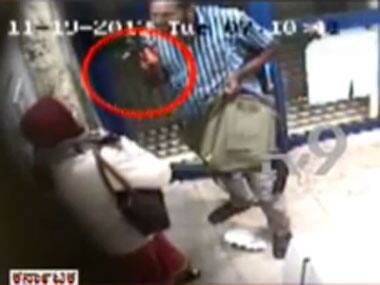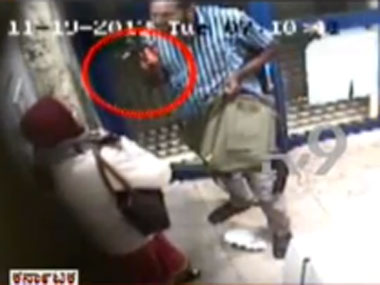The horrific attack on a woman at a Bangalore ATM tells us how wrong our priorities are. It is not a UPA versus NDA issue on how safe Bangalore or other cities are. It is not a Congress versus BJP issue on how women are preyed upon in various states ruled one party or the other. It is a more fundamental question: what should be a state’s priorities when it comes to what it should do for its citizens? Put starkly: should citizen safety take precedence over (for example) subsidies or should it be the other way round? Should public security be prioritised over food security and politicians’ personal safety? Our politicians have chosen the second option – and they are wrong.They prefer to spend lakhs of crores on voter freebies, and not even thousands or crores on policing and safety. Between 2004-14, the central government would have spent Rs 7,60,000 crore merely on providing oil subsidies, most of it to the undeserving, but spending on policing would be a fraction of that amount. This year’s outlay on central police is around Rs 41,000 crore, while oil subsidies alone will top Rs 1,10,000 crore. And we are not even talking of what happens in the states, where a similar callousness prevails. [caption id=“attachment_1239763” align=“alignleft” width=“380”]  Screengrab from the CCTV footage of the attack.[/caption] The first and foremost duty of the state in order to have any legitimacy is the protection of its citizens from external and internal harm or danger. If the lives of citizens cannot be protected from invaders or casual harm by other citizens inside a territory, the state has almost no right to exist. It is not as if the state is the only option when it comes to security. It is always possible to seek protection from ganglords and the mafia as an alternative. And this is already happening in India, where criminal-politicans and thugs offer protection for a price to private citizens. Most private institutions are defended by armies of private security guards, not the police. If public safety is the first duty of the state, the paraphernalia to ensure that – effective policing, a sound and efficient legal system, and an independent law enforcement machinery and judiciary – are related priorities. But this is precisely what our politicians – almost all of them – have sabotaged. By making the police and law enforcement subservient to the protection of their own vested interests, the citizen has been left undefended. This is why the woman at ATM suffered. This is why the Delhi gangrape happened. This is why the government has lost legitimacy. There is a simple principle that we all need to understand: the provision of public goods – goods that benefit all citizens and not just some of them – has to precede the provision of private goods (goods or services that may benefit only some of us). What is a public good? Keeping the air clean with effective anti-pollution laws falls in this category. A clean air act does not benefit Ratan Tata at the cost of the Mr Aam Aadmi. It gives both of them the same benefit. One man’s consumption of a public good does not deny another his right. As Ajay Shah explains in this brilliant blog : “Economists distinguish between public goods and private goods. Public goods are defined to be those that are ‘non-rival’ (your consumption of safety does not reduce my consumption of safety) and ‘non-excludible’ (it is impossible to exclude a new born child from the environment of safety). The legitimate purpose of the state is to pursue public goods. All citizens gain from public goods, and all voters should respond to these benefits. The first and most important public good is safety, which requires building the army, the police and the courts.” An effective policing system that functions without fear or favour is a public good. It benefits all citizens by assuring them protection - or justice, when this protection has occasionally failed. A clear law to protect the sanctity of contracts is also a public good: it protects everybody’s property, and all parties to contracts. Any citizen can enter into a legally valid contract – whether for renting a house or for the provision of goods and services – and this is protected by the state and courts. But what have our politicians been doing? They have been busy debasing the rights to critical public goods and making laws to provide private goods to get themselves re-elected. They have been using sophisticated arguments to legislate the provision of private goods even before the state has been able to guarantee the more important public goods. It is important to understand what a private good is. It is not about Vijay Mallya’s Rolls Royce. It is also about providing subsidised rice at Rs 3 to people who many not need it. A private good gives a benefit for some persons – at the cost of some others. If you eat a state-provided cake, someone else cannot eat the same cake. Provision of free food to the starving is a private good, even though we can justify it on humanitarian grounds. But we also need to be clear: safety and public goods have to precede private goods, however noble the intentions. The problem is that politicians are not elected by a majority of people, especially in our first-past-the-post system. Parties win, and governments are formed, on the basis of 25-30 percent of the vote, and in this number, only 5-10 percent have to be really bribed. This is why politicians find it worthwhile to focus on private bribery (pay cash and booze to votes, and public bribery (by routing subsidies to favoured constituencies. When only a third of the voters have to be pleased, politicians will use bribes. This is the logic of the Food Security Bill, the Land Acquisition Act, the subsidisation of food, fertilisers and fuel. You need to please only some voters, while getting the vast majority of citizens (including taxpayers and investors) to pay for subsidising a section of the population. It is not as if only the rich pay for this use of public resources for private vote-buying. The poor pay for it with higher inflation, but they are unable to connect the act of receiving free with the fact that they are also paying for it through inflation. Our venal politicians have converted even basic things like public safety into a private good. This is why they get protected with armies of Black Cat commandos and NSG personnel, paid for with taxpayer money, even while the average citizen gets no sense of safety in his home, office or even in parks and ATM counters. The state, in fact, has been at the forefront of denying public goods – like the right to private property, for example. The need for a fair Land Acquisition Bill is the result of defrauding generations of the poor of their land paying very poor compensation for it. And this happened less due to private greed and more due to public sector callousness. You don’t have to take my word for it. Ask Jairam Ramesh, the author of the Land Bill. He said: “The record of the public sector (PSUs) in displacements is worse than the record of the private sector. This is a sad truth… that more displacement has been caused by government and public sector projects than private sector projects… particularly in Naxal areas. And this is why Naxalism has grown in these areas.” This is what results from prioritising private goods over public. The Bangalore ATM victim is not going to be the last citizen to pay for this reversal of priorities with bodily harm or injury. (Read Ajay Shah's original blog on private and public goods here).
Our politicians have compromised public safety by spending more on voter bribery than law and order. Public goods like safety have to be given greater priority than private subsidies on food, fuel and fertiliser.
Advertisement
End of Article
Written by R Jagannathan
R Jagannathan is the Editor-in-Chief of Firstpost. see more


)

)
)
)
)
)
)
)
)



